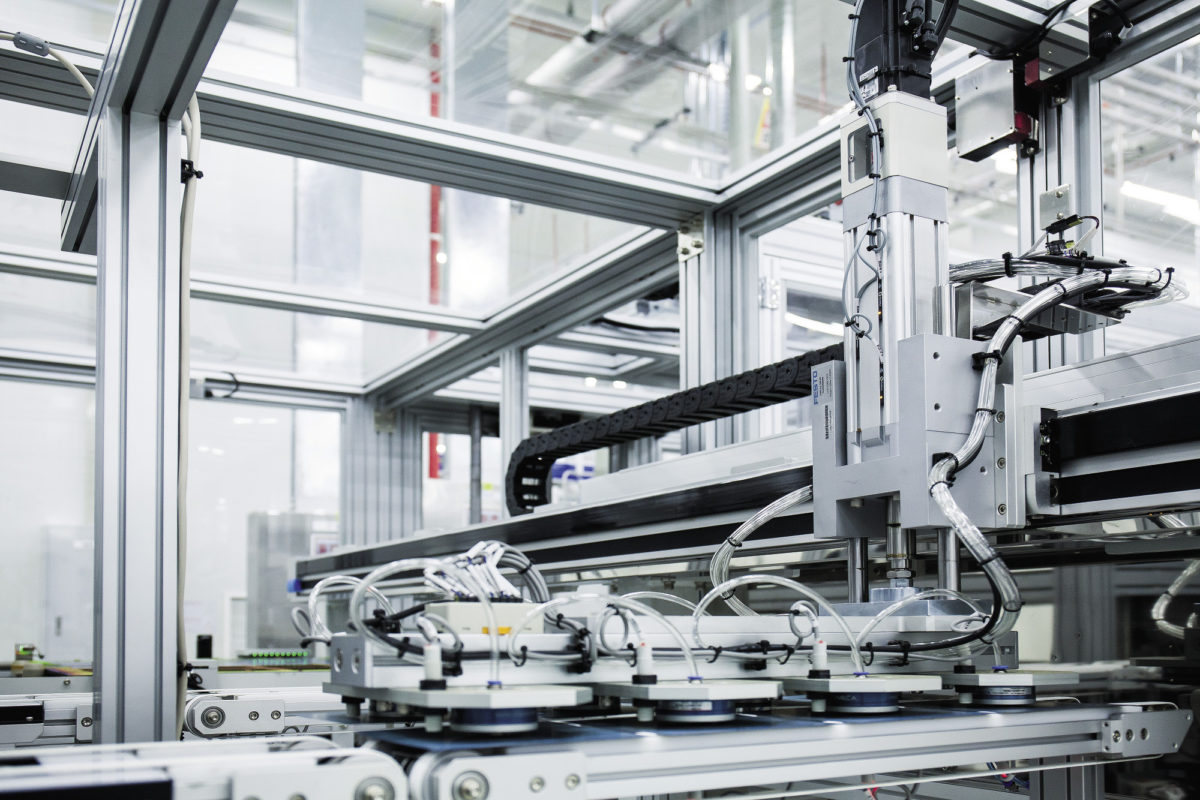South Korea-based solar module manufacturer Hanwha Q Cells will invest a total of KRW1.5 trillion ($1.28 billion) over the next five years to expand solar module manufacturing capacity and increase research and development activities in its home country.
“The overall investment plan will include a 3.1 GW production capacity expansion in Korea, with the plan being to expand Q Cells’ Korean production capacity to 7.6 GW by 2025,” a spokesperson from the company told pv magazine. “Some of the funds from this investment pledge will be steered towards TOPCon and tandem perovskite technology … however, the 1.5 trillion figure is intended to be invested into a number of avenues.”
“The expanded production capacity will include perovskite and TOPCon lines, but it is as yet undetermined what precise capacity this will be,” the spokesperson went on to say, without providing further details.
Popular content
The South Korean market is expected to see the deployment of more than 15 GW of PV capacity by the end of the decade and several domestic manufacturers are competing to secure a slice of this cake, including module manufacturer Hyundai Energy Solutions, among others. Hyundai is planning to build a 1.37 GW facility and recently opened a 750 MW panel factory in Eumseong county, in South Korea's North Chungcheong province, which brought its current module capacity of 1.35 GW.
South Korea’s Ministry of Trade, Industry and Energy (Motie) introduced carbon footprint rules for solar modules in May 2020. These rules are similar to those applied in France, where large scale solar tenders take low-carbon manufacturing into account, as well as the price developers agree to accept for the power generated. South Korea, like France, has an extensive nuclear power generation capacity which aids the low-carbon efforts of domestic solar panel manufacturers.
This content is protected by copyright and may not be reused. If you want to cooperate with us and would like to reuse some of our content, please contact: editors@pv-magazine.com.



1 comment
By submitting this form you agree to pv magazine using your data for the purposes of publishing your comment.
Your personal data will only be disclosed or otherwise transmitted to third parties for the purposes of spam filtering or if this is necessary for technical maintenance of the website. Any other transfer to third parties will not take place unless this is justified on the basis of applicable data protection regulations or if pv magazine is legally obliged to do so.
You may revoke this consent at any time with effect for the future, in which case your personal data will be deleted immediately. Otherwise, your data will be deleted if pv magazine has processed your request or the purpose of data storage is fulfilled.
Further information on data privacy can be found in our Data Protection Policy.